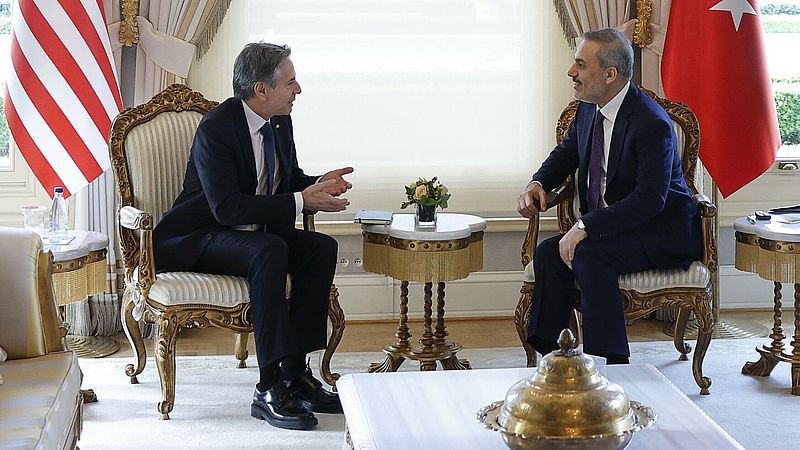US Secretary of State Anthony Blinken has visited the Middle East for the fourth time in a short period of time due to the tension in the region. There are fears that the conflict could escalate into a wider war.
Tensions have risen again in the Middle East in recent days. The radical Shiite Hezbollah movement fired dozens of rockets at an observation post in Israel this morning. A direct response to the killing of the Hamas leader earlier this week. This was followed by a drone strike in the Lebanese capital Beirut, most likely carried out by Israel.
'Israel feels strong'
“The fact that Israel openly dares to kill a Hamas leader in another country indicates that they feel strongly,” says historian and geopolitical commentator Arend Jan Boekestijn.
“Hezbollah claims they have 100,000 missiles capable of being fired at Israel. But their host Iran is not really interested in a drastic escalation and is holding off on major military action for the time being.”
Impact on oil prices and world trade
Meanwhile, Israeli attacks on the Gaza Strip continue and the situation for civilians in the area is increasingly desperate. Additionally, there are major concerns about the safety of ships in the Red Sea. This shipping lane is very important to the global economy.
30 percent of all containers worldwide are transported through the Red Sea and the Suez Canal. If traffic is disrupted, it could affect oil prices and the wider supply of Asian goods to the West.
The US is active in the Red Sea
So the US reluctantly got involved in the conflict this week. The country has deployed helicopters against Yemen's Houthi rebels to ensure the safety of merchant ships in the Red Sea. When they tried to hijack a container ship, they were shot dead by American soldiers.
“It's a very difficult situation for Americans,” says Boekestijn. “They don't want to get too involved and avoid a major war in the region at all costs. Military conflict is a bad thing, but especially in an election year. It's remarkable how you see the decline of American power. The country was a world power during this conflict, but now it's in its twilight years.”
Trembling
But America still has influence. Blinken will be doing a full tour of countries like Turkey, Israel, United Arab Emirates, Jordan, Saudi Arabia and Egypt. Boekestijn thinks there's a lot at stake: “The Americans still don't want any escalation. But the balance is very shaky now. It's really worrying.”
EU politician Joseph Borel is also in the Middle East today. He is the European representative in the Department of Foreign Affairs and Security Policy. Borel has been talking to politicians in Lebanon. with the aim of preventing further escalation on the border between Lebanon and Israel.
diplomatic route
“Everyone is looking forward to a diplomatic way to de-escalate the situation. US President Biden has asked Israel to rein in and, for example, allow more humanitarian aid to Gaza, but they have not listened. Their actions have come to an end.” “This moment is disproportionate and ultimately only emboldens Hamas,” says Boekestijn.
He continues: “I think Israeli Prime Minister Netanyahu has to take kilos of sleeping pills to sleep. He 'A dead man walks', everyone is angry with him. But the Israeli government thinks they can get away with a lot. Because that country has nuclear weapons that can threaten. I think it's very scary.”
To ask? Ask them!
Do you have any questions or would like answers? Send us a message in our chat.

“Passionate analyst. Thinker. Devoted twitter evangelist. Wannabe music specialist.”







More Stories
Cooperation between the US and China ensures more stable corporate finance – FM.nl
New US peace proposal for Gaza war ‘may be too smart for either side to say no’
Bitcoin weathers bankruptcy storm in US